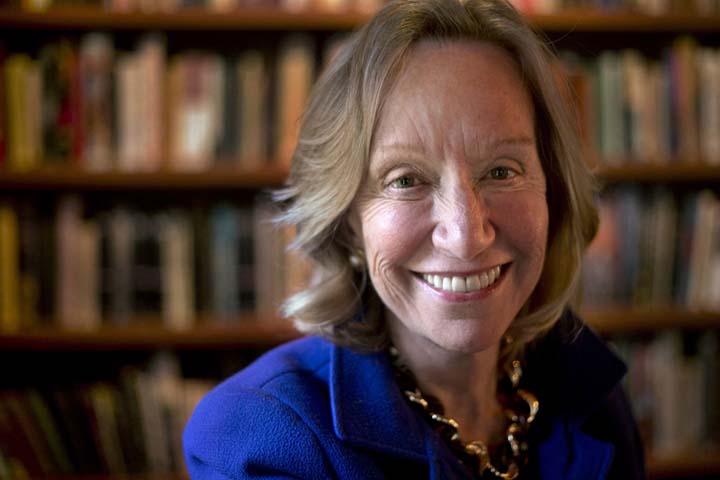Advertisement
Doris Kearns Goodwin On Teddy Roosevelt And The Progressive Era
This program is rebroadcast from November 27, 2013.
Pulitzer Prize-winning historian Doris Kearns Goodwin on protest, reform, Teddy Roosevelt and America then and now.

There are a handful of times in America’s history when the country has transformed, says historian Doris Kearns Goodwin. Shed old ways and emerged anew — an altered country. She’s told that story in the history of Lincoln and the Civil War. FDR and the New Deal. More. Now Americans of many stripes are wishing for a transformation again. Dissatisfaction with the Washington status quo runs high. And this historian is telling the story of Teddy Roosevelt and the transformation of the Progressive Era. This hour On Point: Doris Kearns Goodwin, and what it takes to change America.
-- Tom Ashbrook
Guest
Doris Kearns Goodwin, Pulitzer-Prize-winning American historian. Author of "The Bully Pulpit: Theodore Roosevelt, William Howard Taft, and the Golden Age of Journalism." Also author of "Team of Rivals: The Political Genius of Abraham Lincoln," "No Ordinary Time: Franklin and Eleanor Roosevelt: The Home Front in World War II," "The Fitzgeralds and the Kennedys: An American Saga" and "Lyndon Johnson and the American Dream." (@DorisKGoodwin)
From Tom's Reading List
New York Times: A ‘Bully’ Defying the Bullies of His Era — "Without explicitly verbalizing them, 'The Bully Pulpit' points up the many parallels (and crucial differences) between the Progressive era at the turn of the 20th century and the country today: a squeezed middle class; growing gaps between rich and poor; an escalating debate over the role that the federal government should play through regulation, taxation and legislation; public frustration with a 'do nothing Congress'; questions about White House leadership; and an often poisonous schism within the Republican Party."
Dallas Morning News: Book review: ‘The Bully Pulpit: Theodore Roosevelt, William Howard Taft, and the Golden Age of Journalism’ — "As Roosevelt addressed crises such as a crippling coal miners’ strike, he would not, as Kearns writes, 'be confined by precedent or bound by fear of failure.' Roosevelt himself later wrote that a president may assume that 'he has the legal right to do whatever the needs of the people demand, unless the Constitution or the laws explicitly forbid him to do it.' This assertiveness characterized his presidency."
Advertisement
Politico: Doris Kearns Goodwin weighs in on Chris Christie, William Howard Taft and big personalities — "Goodwin’s latest tome examines the Progressive Era’s first decade, the friendship between Roosevelt and Taft, and the muckracking press. She says she had always wanted to write about Teddy Roosevelt, noting that “he presented a more colorful, interesting, larger-than-life figure than most presidents do” but that she struggled to find a unique angle to the story not previously covered by other historians."
Read An Excerpt From "The Bully Pulpit: Theodore Roosevelt, William Howard Taft, and the Golden Age of Journalism" By Doris Kearns Goodwin
Doris Kearns Goodwin In The WBUR Studios

This program aired on May 26, 2014. The audio for this program is not available.